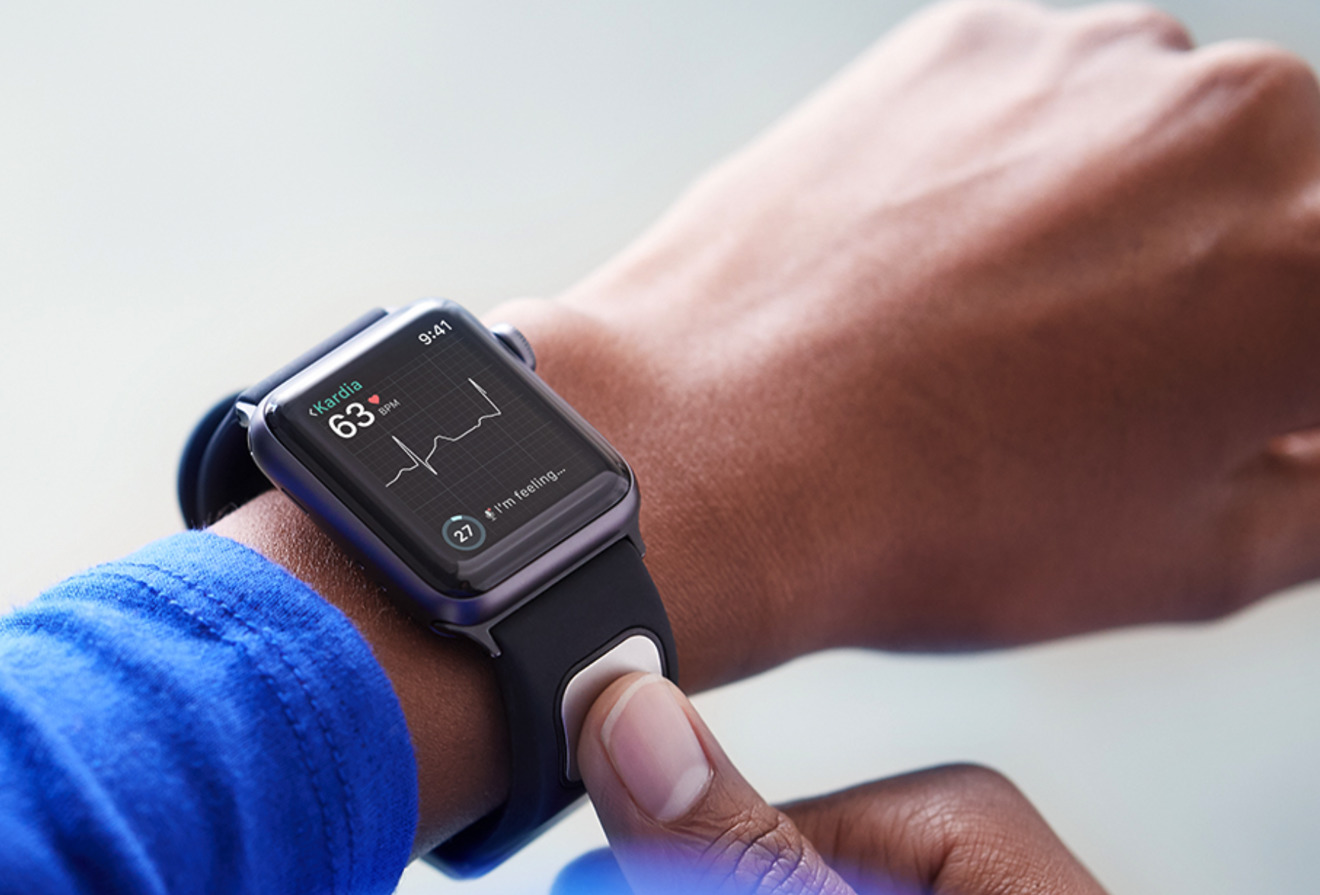After a few years of health monitor peripherals availability lacking the Food and Drug Administration's approval, AliveCor's Kardia Band has been approved by the agency, opening up more use of the device in diagnoses of atrial fibrillation in the United States.
Available in Europe for a year and just now released in the U.S., the Kardia Band is activated by the user placing a finger on the sensor pad. The measurement taken across the finger to the Apple Watch facilitates the 30-second EKG reading.
Acoustical signals transmit the reading to the Apple Watch, with it displayed as a waveform on the watch. The data is stored on the connected iPhone.
Clearance granted by the FDA allows the software and hardware combination to advise the wearer that the reading is normal, or possibly an indication of atrial fibrillation.
The subscription service connected to the hardware, SmartRhythm, examines real-time and historical data to predict what is considered acceptable for heart rate readings. Should the user's heart rate exceed that range too many times a day or for a long period of time, the app tells the user to take a EKG reading.
"A lot of my patients already use the credit card sensor, but they don't know when to take an EKG; so they just do it when they feel light-headed or dizzy," Scripps cardiologist Dr. Eric Topol told FastCompany. ""If you can direct them when to do the EKG it's going to markedly increase the number of EKGs taken."
Atrial fibrillation is a change in the normal rhythm of the heart characterized by irregular beat, which is generally imperceptible by the sufferer. The disease is associated with a significantly higher rate of heart failure, stroke, and is linked to dementia as well.
Between two and three percent of North Americans and Europeans are affected by the disease. Four percent of people between 60 and 70 are afflicted, with the number rising to 14 percent of those over 80 years of age.
Atrial fibrillation was responsible for 193,000 deaths in 2015.
AliveCor's Kardia Band is available now for $199, for either the 38mm or 42mm Apple Watch. The Kardia Band replaces the Apple Watch band.
The device requires subscription to AliveCor's premium service for $99 a year, with one free month of service included.
 Mike Wuerthele
Mike Wuerthele







-m.jpg)






 Christine McKee
Christine McKee
 Malcolm Owen
Malcolm Owen
 Marko Zivkovic
Marko Zivkovic

 Andrew Orr
Andrew Orr
 Andrew O'Hara
Andrew O'Hara
 William Gallagher
William Gallagher





-m.jpg)



11 Comments
This is where the watch takes a very important path. With more FDA approved devices like this, the value of the Apple Watch significantly improves for the non-fanboys.